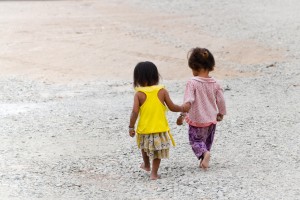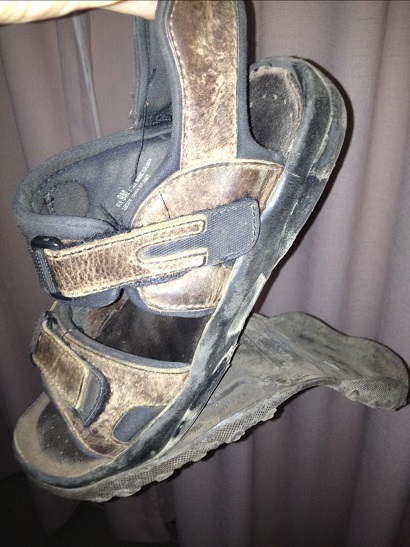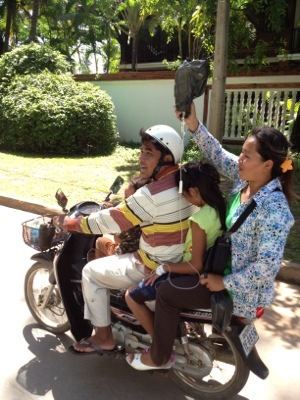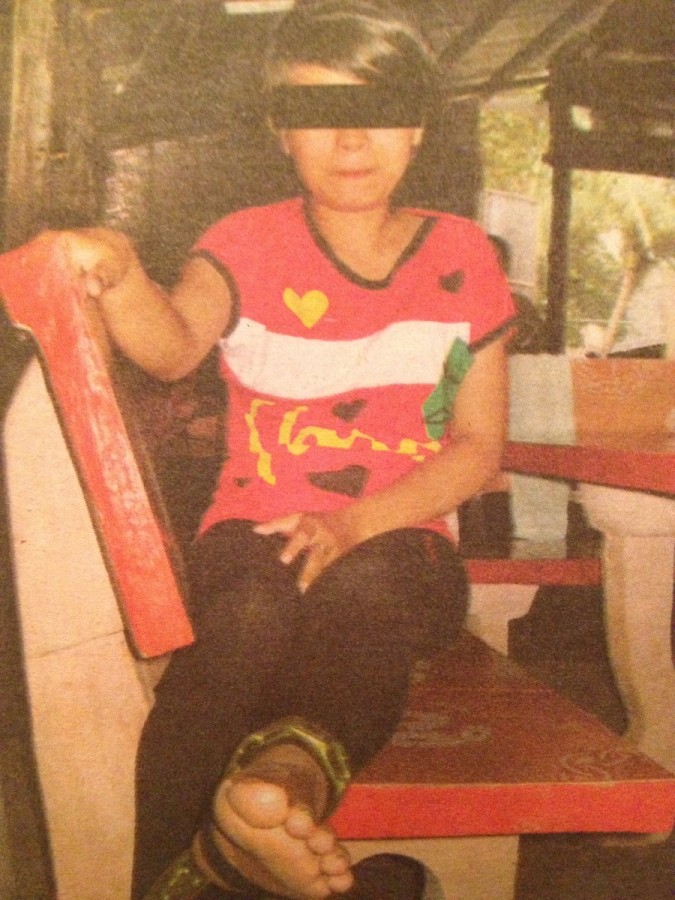Standing in line in South Korea I struck up a conversation with a fellow traveler. His passport told me that he was an American but his eyes told me that he was, like me, on the last leg of a very long journey. At that point on the trip conversation is one of the best ways just to stay awake so I jumped in. I asked if he was heading to Cambodia on business and he said that he was. His business, as it turns out, involves working with the government to reclaim land that is still filled with unexploded anti-personel and anti-tank mines. Imagine having that job! I remember years ago, on my first trip to Kosova, watching men with metal detectors (and not nearly enough protective gear!) demining the area around the airport! And you thought your job was bad! Then, this morning, I noticed that the lead article on the front page of the The Cambodia Daily was “Anti-Tank Mine Deaths Increase With Development”. The article detailed the deaths of six people just a few days ago. Two “mine moments” so close together led me to do a bit of research. I discovered that since 1979 over 16,000 people have lost their lives in incidents directly related to landmines. Another 40,000 people have had one or more limbs amputated. Few countries in the world share a similar statistic. Cambodia is still one of the most heavily mined countries in the world with legitimate estimates ranging between 4-6 million unexploded mines. The government currently spends $30 million a year just in demining activities and it is project at this level it will still take nearly two decades to clear the remaining mines.
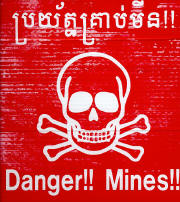


The following are excerpts from Dr. Wade Roberts book entitled Landmines in Cambodia: Past, Present, and Future. Published by Cambria Press (June 2011). A Kindle version is now available. I share them because they articulate another reason why CGI is involved in empowering the poor.
“Cambodia is a land of contrast: astonishing temples and deficient aqueducts, elegant dance and pervasive disease, grandeur and genocide, plenty and poverty, landmarks and landmines. Every village has a story, every family a trial. Life is fragile and death is commonplace. Religious and cultural institutions give cognitive pacification when crops failures occur or new mothers die during child birth. The traditions here are strong and people have discovered ways to endure. While most survive, the majority do so in chronic and pervasive poverty. Economic need is profuse. My eyes are continually opened to the consequences of destitution. My heart hurts. How was I so lucky? If the situation were reversed would anyone be willing to come to my aid? It would be so easy to turn away. Perhaps with time I would forget these feelings of responsibility.
“Sarun Sot was standing in an open field outfitted with a worn sack dangling from his shoulder. On his other shoulder he had positioned a strap which was connected to the metal shaft of a metal detector. The strap helped to hold the weight of the device as he motioned it left and right in concentrically expanding semi-circle patterns. Alone, he was searching for metal. Sarun was 12 years old. His family relied on the income that he acquired selling the snippets and oddments of metal he unearthed. He would tote his daily find to his uncle’s home – less than a kilometer away from where he lived. After being paid the going rate for the weight of metal he had uncovered, he quickly instituted the return leg of his journey towards his home with cash in hand. A portion of his earnings were given to pay rent on the metal detector. The remainder was handed over to his father. Sarun was to continue this process the following day, and the next, and the next. No long-term escape plan was in place.”
“Situations of poverty and economic need often induced risky behavior involving explosive remnants of war. Most often this interaction was intentional in an effort to temporarily ameliorate the sting of poverty. It was the plight of so many like Sarun that motivated my research. Sarun died July 14th, 2008.”


